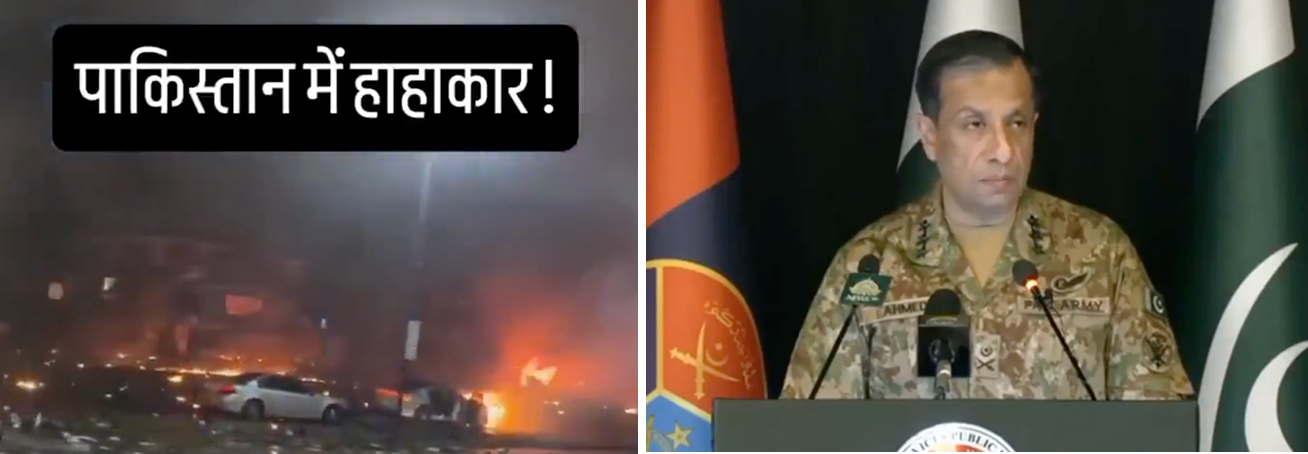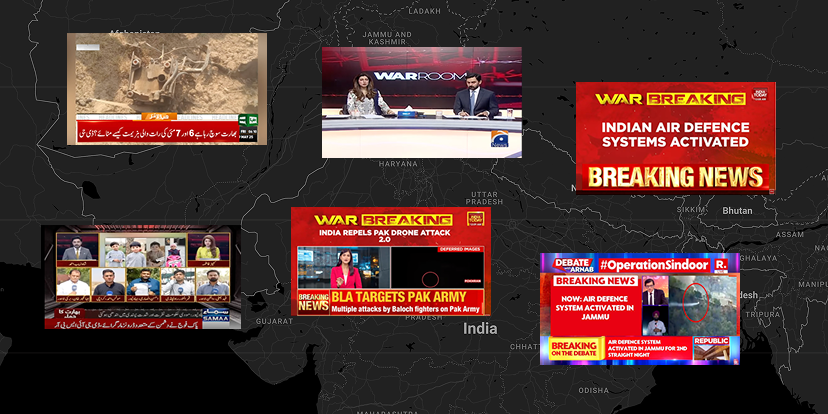There’s no bigger stage for mis- and disinformation than the deep-rooted hostility between India and Pakistan. Both governments routinely engage in censorship and disinformation efforts, and they rank near the bottom of the list in press freedom. Citizens rely heavily on chat apps and social media, and they’ve been early adopters of AI. When there’s conflict, the propaganda machines kick into overdrive.
“While it’s normal to see disinformation in conflict zones, the latest unrest in Jammu and Kashmir has gone beyond your standard fog of war,” said Jillian Stampher, who leads Factal’s global team of journalists. “Both countries are very active on X, and that, combined with limited reliable information from governments, has led to the significant and frequent spread of false narratives.”
Built for the new era of information pollution, this is where Factal does its best work. We combine three approaches to ensure we’re delivering trusted information in real time:
Real-time verification
While our proprietary AI engine surfaces potential events from open data, our newsroom quickly verifies new developments. Factal’s multilingual team of journalists draws from a variety of tactics and tools to assess claims, sourcing, images and geolocation in just a few minutes time. In the first 48 hours of the attacks, Factal editors posted 166 verified updates on the strikes, airspace closures, blackouts, social media restrictions and government reactions.
“Factal is indispensable in determining the ground truth for our reporting,” explained one risk intelligence leader at a large multinational company. “This is the most difficult misinformation environment I’ve ever encountered.”
Veterans of information wars in Russia-Ukraine and Israel-Gaza, Factal’s editors are accustomed to navigating a minefield of mis- and disinformation. But the sheer scale and normalization of false narratives in Indian and Pakistani media raised the bar even higher.
“Be suspicious of everything,” wrote Factal Senior Editor Halima Mansoor in a two-page guidance note to the editorial team. “Do not trust your eyes. Doctored visuals are being circulated by journalists.”

Editors quickly debunked several doctored or mischaracterized images that were picked up by news sources, including a recycled image of the Philadelphia plane crash (left) and a fake AI-generated press conference from Pakistan military chief Ahmed Sharif Chaudhry (right.)
Editor’s notes
One of our most popular features, our editors share quick notes detailing unconfirmed information, conflicting details, misinformation or context surrounding an incident. Over the first 48 hours of the attacks, Factal published 26 editor’s notes with context and guidance, like this one:

Rather than just pass along conflicting, unverified reports, editors are able to provide background information, source context and additional reporting. Editor’s notes are especially vital during conflict when claims from either side are difficult if not impossible to verify in the moment.
Incident chat and flash briefings
Moments after the first attack, Factal activated an incident chat for the India-Pakistan hostilities. A secure group chat, members share what they’re seeing – sometimes on-the-ground reports – and ask Factal editors questions. During high-velocity, high-noise events, it becomes a critical space to gut-check information and cut through the fog.
For example, several members asked about early X reports — picked up by some Indian media organizations — that the Port of Karachi had been destroyed. We responded:

The reports turned out to be false.
Several hours after India’s attack, we also held a live flash briefing for members – a rapid, interactive session where editors shared what we knew, what we were still verifying, and what to watch next
These community channels aren’t just communication tools – they’re part of the trust infrastructure that makes Factal work. They create a real-time feedback loop that builds confidence, fosters accountability and helps us surface and verify critical details faster.
Risk intelligence in the AI era isn’t defined by the speed of detection – but by the confidence to act. Factal members tell us they respond 28 minutes faster on average compared to other tools, and they’re able to shift more resources to higher-value tasks. If you’re interested in learning more about Factal, please drop us at note or book a quick demo.

